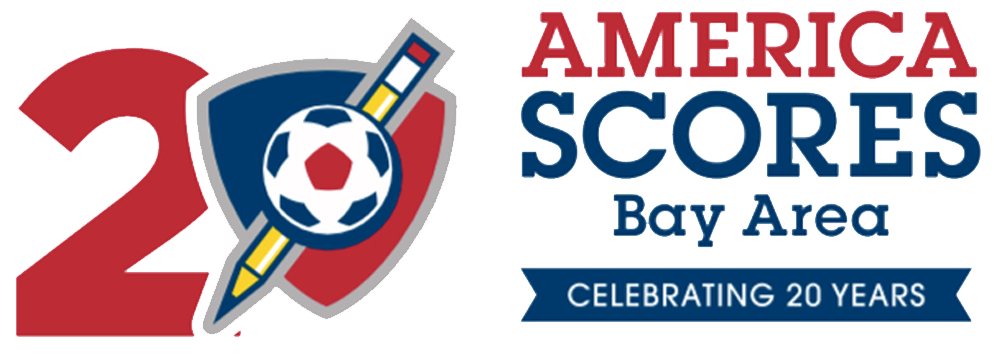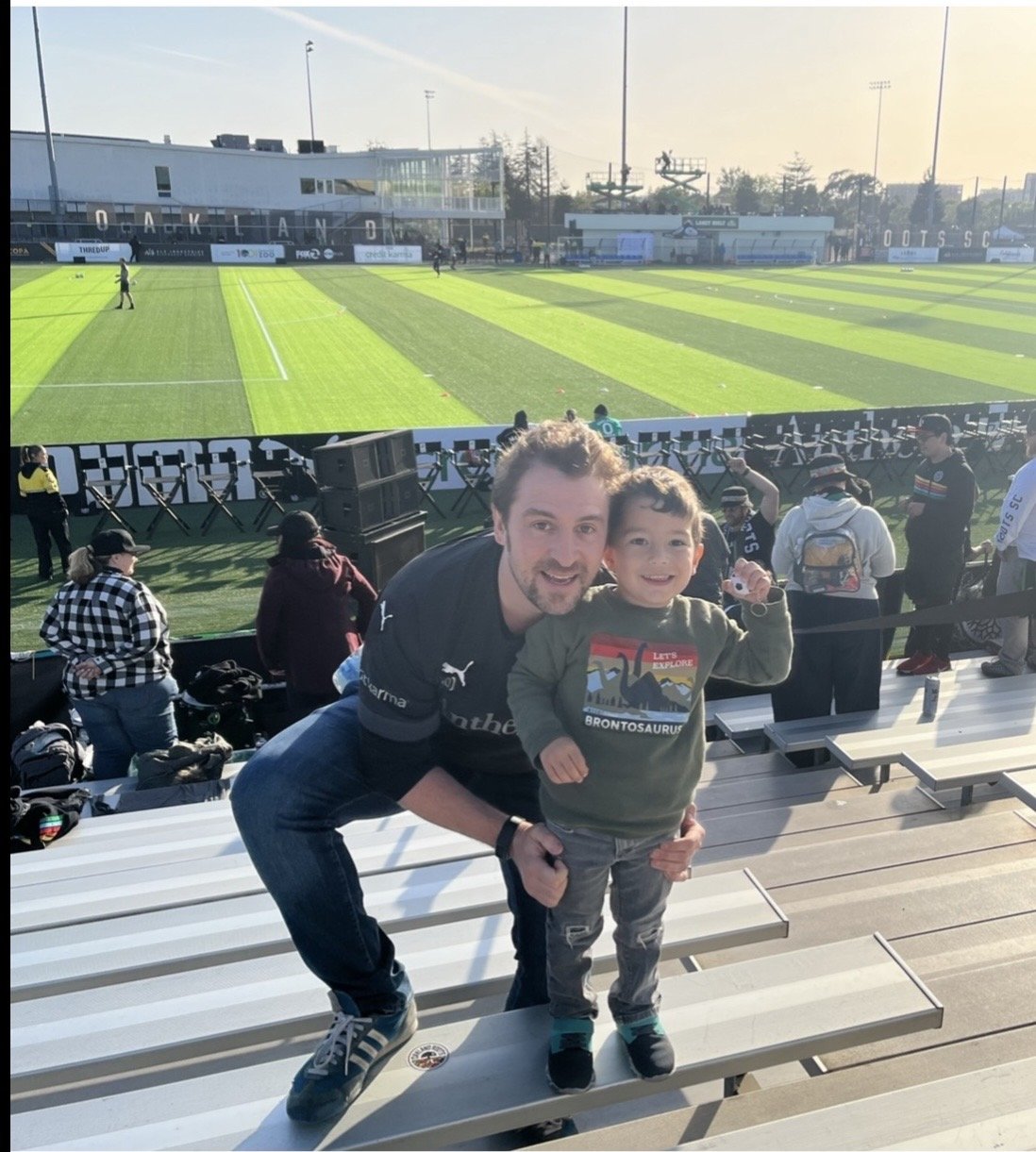Rob Harrison
Rob Harrison, Bloomberg team captain, celebrating victory at the SCORES Corporate Cup
Rob Harrison is one of SCORES’ most spirited volunteers. Rob is the Enterprise Data Sales and Relationship Manager at Bloomberg L.P., the global financial technology, data, and media company. He’s captained a Bloomberg soccer team for three years running in SCORES’ annual Corporate Cup with no intention of stopping the streak. We talked to Rob about his deep love of soccer, how he first got involved with SCORES, and the wisdom he’s learned along the way.
So Rob. It’s abundantly clear to anyone who’s seen you play with your Bloomberg team at the SCORES Corporate Cup that you are hardcore devoted to soccer. You are clearly “all in.” Where do those deep soccer roots come from?
I was a very sporty child. I grew up in the UK and played soccer, or football as we called it, at least eight to ten times a week. I played after school, at recess, and for school and club teams. I played other sports too – rugby, cricket, you name it – but for me, it was really all about football, football, football. I was obsessed: playing it, listening to it, watching it, reading about it. And to be honest, not much has changed.
What was it about football? Maybe it’s the kinetic connection between you and the ball? Part of it is being out there on the field and the way that makes you feel. I love the saying that soccer is poetry in motion. You can communicate with a soccer ball without knowing someone or speaking their language. You’re using this object, a ball, that can make people stand on their feet. There are moments when the hairs stand up on the back of your neck just from kicking a ball around, which is insane! It can mean so much and create so much emotion.
It doesn't matter what age you are or where you’re from. And there’s so much possibility. You can be someone playing with socks packed together and rolled up with elastic bands into a soccer ball and then become a world star or someone from the UK who’s played as long as he can remember. Then there’s the team aspect and the feeling of unity that it brings. Soccer is almost like a religion to people throughout the world. I’ve had the opportunity to go to three World Cups, and seeing 80,000 people together, unified, and singing the same song is mesmerizing.
How did you first get involved with SCORES?
Bloomberg and Bloomberg Philanthropies work with many communities and organizations in the Bay Area. In 2016, I kind of stumbled across an America SCORES volunteering event in the Civic Center and decided to attend. I loved it. The program was bringing kids together through soccer to play in an area that should be a beautiful part of San Francisco. Part of the job was cleaning up the fields before setting up for soccer. That meant cleaning up things that weren’t ideal, like needles. We wanted those fields to be beautiful for the kids running around on them.
It was fun to interact with the kids. They were amazed I didn’t sound like their teachers or people they usually interacted with. They thought it was cool that a British guy was there. I could talk to them on multiple levels. I studied English and literacy for my O levels in the UK, so we could talk about poetry. And because I still have a child-like obsession with soccer, we could talk about players and the game itself.
It was a lot of fun and showed that it doesn’t matter how old you are or your class, race, or preference. It’s about coming together and enjoying the space with soccer, poetry, and fun. I just loved it. I saw how dedicated the SCORES staff was to the cause and thought that, given my interests, I could help.
You could help, and so could your employer, Bloomberg. You became a key advocate for SCORES. How did that work?
Organizations and nonprofits like America SCORES need help from big companies and global organizations like Bloomberg, and it can be difficult for them to get their voices heard. So I became a real advocate for SCORES within my company because there are thousands and thousands of nonprofits vying for attention. I like how Bloomberg as an organization encourages us to work with nonprofits. I volunteered again, bringing in my Bloomberg team, who saw my passion and that of SCORES. Watching a soccer practice, a poetry slam, or a poetry competition, you see the profound impact this organization is making in the lives of these children.
Listening to the stories of these young poet-athletes and the experiences of SCORES alumni, it’s almost like you can look into the future. You can see how lives are changed. Many of these kids come from underresourced communities and face deep challenges and safety issues. SCORES gives them another option, another path. They’re having fun playing soccer and learning literacy and communication skills that will benefit them for years to come. It made sense that we started working more closely together.
Since then, I helped make SCORES the primary beneficiary of Bloomberg’s Square Mile Relay fundraiser, helped organize poetry slams and SCORES service days for Bloomberg interns, and captained a Bloomberg team in SCORES’s annual Corporate Cup soccer tournament. I also worked on a SCORES leadership committee, helping to build relationships with the San Jose Earthquakes, the Bay FC, and the Oakland Roots and Soul teams.
So how are you going to top all that?
I want to capitalize on the World Cup next year. Let’s see if we can elevate SCORES as a name known nationally! That would be fantastic. I’ve got requests out to get two or three Bloomberg teams into the next SCORES Corporate Cup, and I plan to run a marathon with the SCORES team.
Leaning back into the reflective mode, if you were to look back and give advice to your SCORES poet-athlete-aged self, what would you say?
It sounds so corny, but it’s still true. I would say, follow your dreams and passions, and don’t listen to naysayers or get derailed by obstacles. If you have the opportunity to pursue a dream, go for it. My son is six and a half, and I keep telling him, don’t listen to the negative kids or negative points. Be positive. If you get knocked down, just get up again. If you keep getting knocked down, just keep getting up again. You’ll be stronger for it.
That’s wise advice.
To read more Five Questions With conversations, go here!
Rob and his son


